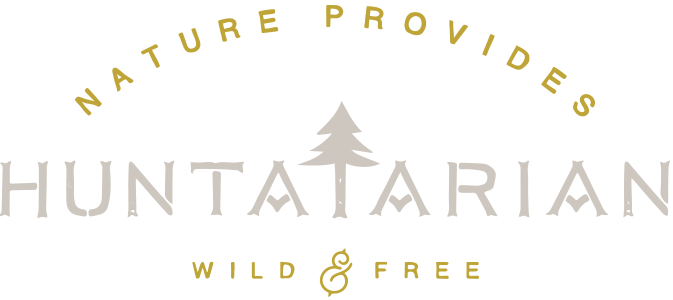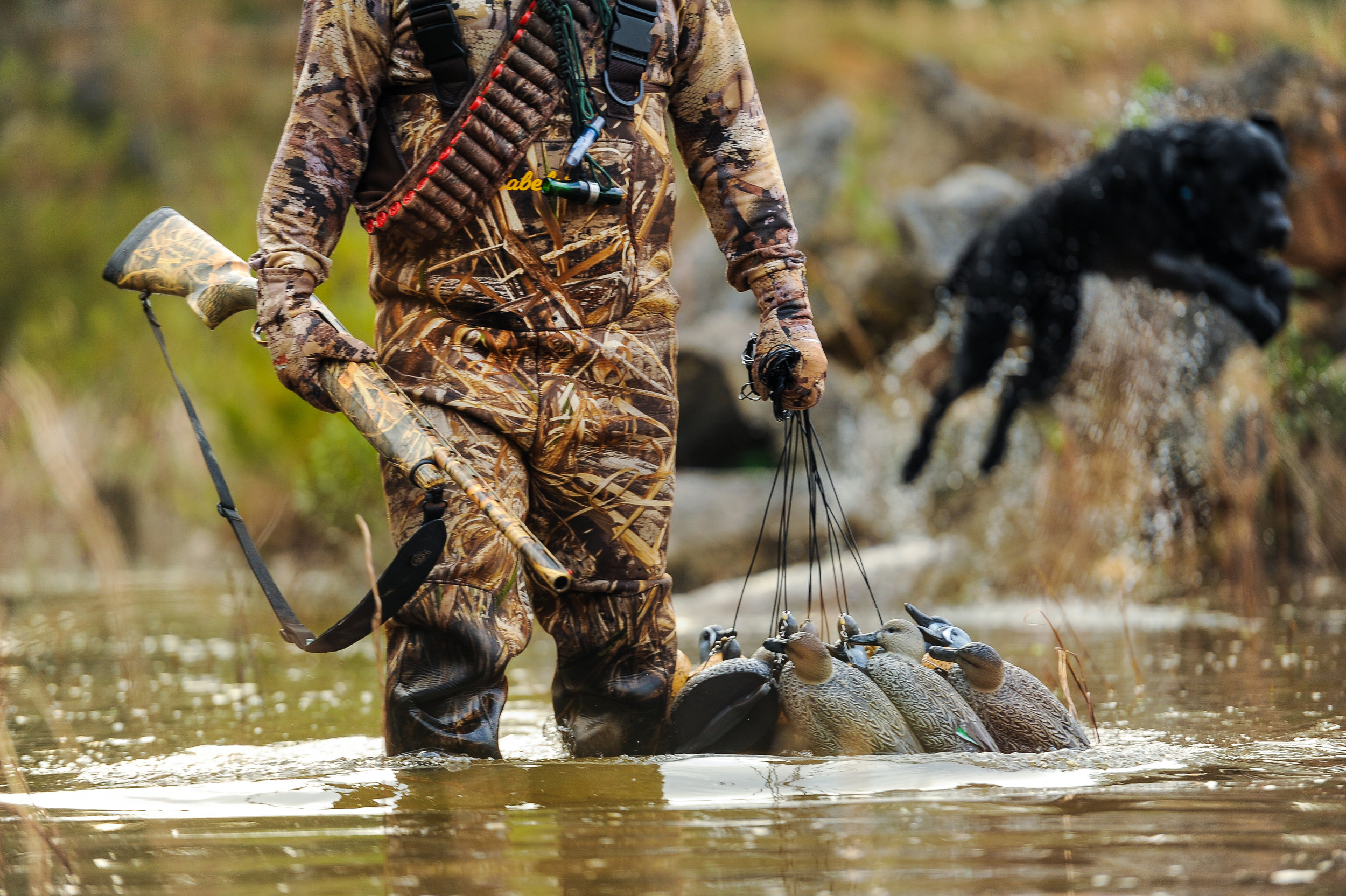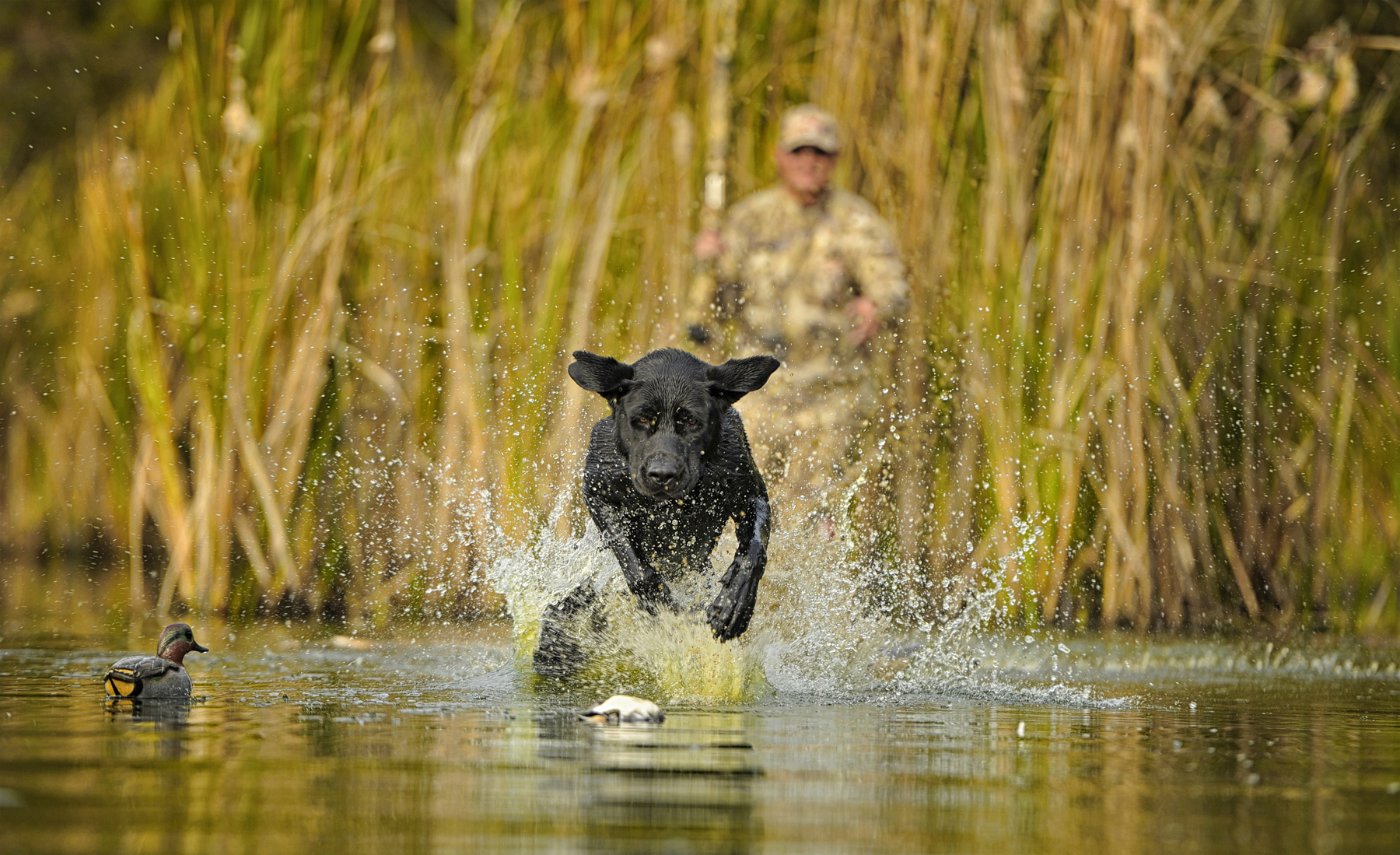As the hunting season runs its course, it’s hard to ignore the ability to add duck hunting to an outdoorsman’s calendar.
There is nothing else that I have found that will break up the everyday monotony of sitting in a deer stand alone, than an active day in a duck blind with friends.
You can’t help but crack up laughing as your buddy misses the perfect shot 3 times, with meat cooking in the background on a small grill, nobody cares about scent control and no one gets mad at the guy that talks too much. It’s all about camaraderie and good times. But soon as the next flock of opportunity comes swinging in, everyone quickly becomes a serious hunter, full of anticipation for what will happen next.
Although I am not the most accomplished wing shooter, I get a lot of questions about how to get started in duck hunting. With the common question “What do I need ?”.
That has led me to interview Huntatarian Team Member, Captain Chris Hererra. The guy on our team that is the most ate up with duck hunting than anyone else. He is our go to guy for anything duck.
So this interview is for the very beginner. The guy or gal that doesn’t own a gun, but is about to step into the world of duck hunting. You’ve got an invite to jump in on a WMA tag and want to know where you start. Then this interview is for you.
A Q&A Interview With Captain Chris Hererra
Q) Capt., lets make this as straight forward as possible. But please elaborate where you feel needed. For someone that’s stepping into Duck Hunting, what have you found to be the most important place to start?
A) Firstly, I direct a new hunter is to learn the rules, regulations and duck id for the area they are hunting. For us in Florida, the information needed is located at www.myfwc.com It will explain bag limits, legal use of take, licensing and season dates.
Q) I know you shoot a Beretta, but in a beginning phase, how important is it for someone to invest in a top of the line gun?
A) Buying a top of the line shotgun is not going to make you the next top shot at duck camp. Technique, hand and eye coordination is what makes shooters great, not the latest and greatest shotgun. Best advice for a beginner shooter before they buy a gun, is to put as many shotguns in your hands as possible and what fits you as a shooter. Sure the top of the line guns have better bolts or shock absorption systems and if you can afford it, go for it. But choose something that fits your budget, even if its used. At an early stage all that really matters is when you pull the trigger the gun goes boom.
Q) There are all types of waders out there to choose from. What’s something to look for when choosing the right pair?
A) There are 2 common types of waders made for different climates and or rugged areas. As a Florida waterfowl hunter, I like a breathable wader since we hunt in warmer climates and it keeps sweating to a minimal compared to neoprene waders. If it does get colder like in late season, I can layer up under my waders to stay warm. When I travel to Missouri, Arkansas or Tennessee I tend to bring my neoprene waders that will keep me warmer if standing in cold water for a long period of time. I look for waders that have good reinforcement in the butt and especially the knee areas as those take the most abuse.
Q) What’s your take on a duck call? Is it something a rookie should attempt?
A) Bad duck calling or overly calling can do more harm than good. I recommend for beginners to hold off on calling for now, its best to practice and learn when to call and what type of call to use.
Q) How many boxes of rounds should someone bring for a morning duck hunt?
A) We all have our good days and bad days. On good days one box or less is needed to harvest 6 ducks where other days it might take 2 boxes. For Florida I like to use 3-inch #4’s . They are the most standard size people shoot for puddle ducks. I pick up #2’s when I have opportunity for bigger birds like canvasbacks, mallards & maybe a goose. I recommend to bringing two boxes if you're invited on a morning hunt, unless prohibited as certain WMA’s only allow one box per hunter.
Q) As we have learned, decoys are not cheap. What would be a respectable amount to show up with to a group hunt and what would be a good all around type of duck to get?
A) Decoy strategy is all based on location and species. If hunting divers in open water a 200 decoy spread is not uncommon. If you're hunting green or blue wing teal in shallow pot holes you can get away with one or two dozen decoys. I cannot say there is one good all around type of decoy to buy as I choose my decoys based on the duck species I am hunting for. But the most common bird you might see from Saskatchewan to Florida is a teal.
Q) There are so many choices these days to buy camo for duck hunting. What did you wear in your early stage and as you have progressed, what do you choose now?
A) Because your waders cover 70% of your body, I didn't invest into any top brands of duck camo when I started. I used what ever I had for deer hunting. Now I choose my camo based on what patterns and colors best matches the areas I hunt, followed by comfort and functionality (pockets, hoodie, dry wick etc… )
Q) How important is it to duck hunt with a bird dog? And if a dog is totally out of the question, what have you seen people do to retrieve without a dog?
A) Hunting with a bird dog is not a determining factor of whether you will shoot ducks or not. It’s considered more of a luxury because it keeps you hunting and dry.
If in shallow water a hunter without a bird dog can wade out and pick up their bird, but if in deep water you have to start up your duck boat to pick up the ducks. But I have seen guys like Joe Pulido use a small kayak to retrieve that he tows out behind his duck boat instead of starting up his engine and giving up his location.
Q) What type of licenses does someone need to hunt duck in their state?
A) Most states that I have hunted require: Hunter safety certificate, hunting license, migratory bird permit and all states require a federal duck stamp. Some states also make you purchase a duck stamp for their state.
Q) And lastly, what would be your best all round advice for someone that truly wants to become a duck hunter?
A) Try to find a mentor, hunting buddy or duck club where they can help with the learning curve. Teaming up with someone that you can learn through offers you the best experience.
Follow @captchris1 on instagram for more of Captain Chris Hererra's adventures and tips.
Interview and photos by A.J. Neste






